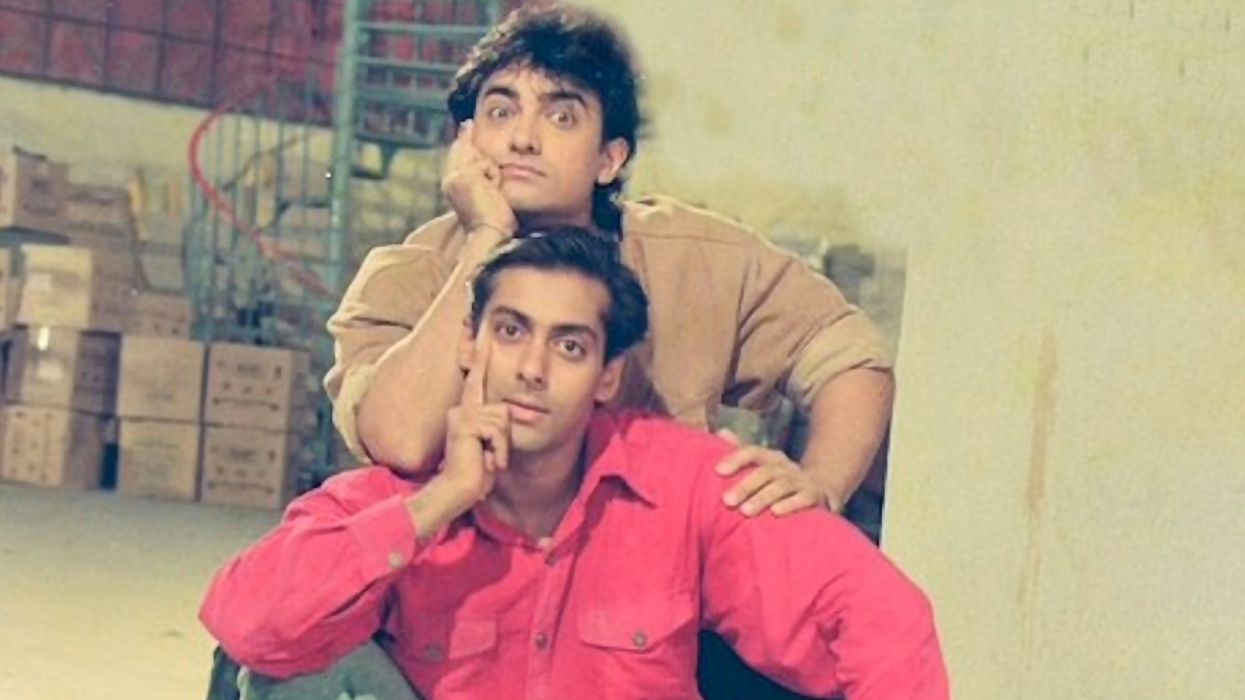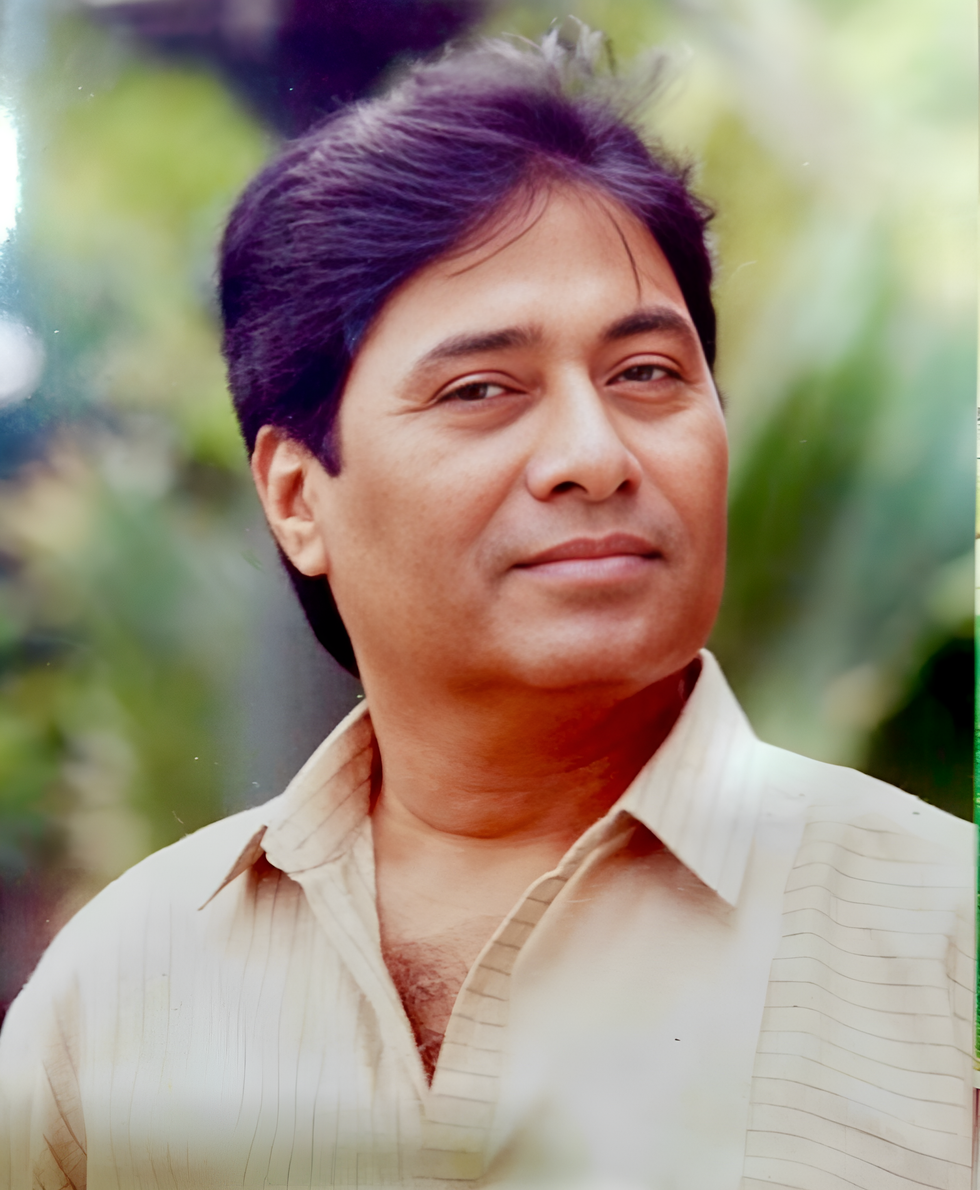With the Golden Globe win of RRR track 'Naatu Naatu', Indian composer MM Keeravaani has become the toast of the 2023 Hollywood awards season, but his connect with audiences goes way back to the 1990s generation still mesmerised when they hear the romantic Telugu track 'Thelusa Manasa'.
Better known to audiences up north as 'Tum Mile' in Hindi from Mahesh Bhatt's 1994 film Criminal, 'Thelusa Manasa', a breezy love ballad sung by SP Balasubrahmanyam and KS Chithra, is everything that 'Naatu Naatu' is not.
'Naatu Naatu', which translates to bucolic in Telugu, was a runaway hit at home in India with the release of SS Rajamouli's magnum opus. Soon, the viewers in the West were also swept away in the irreverent and yet inclusive vibe of the 4.35-minute song enacted on screen by leading stars Ram Charan and Jr NTR.
"Overwhelmed by the response from all over for the Golden Globe. Thank You for all your wishes," Keeravaani wrote on Twitter after the win.
The rousing soundtrack and background score of RRR, a fictional tale set in pre-Independent India following the adventures of real-life revolutionaries Alluri Sitarama Raju (Ram Charan) and Komaram Bheem (Jr NTR) is the bedrock of the film's success around the globe.
Who can forget the viral visuals of foreigners trying to match steps to the rhythm of the song as they erupted in a euphoric dance during the screening of the period action epic in several theatres?
Apart from Telugu, the film released in four more languages, and so did the song. It is 'Naattu Koothu' in Tamil, 'Naacho Naacho' in Hindi, 'Karinthol' in Malayalam, and 'Haali Naatu' in Kannada.
Keeravaani, who works across film industries in India, made his debut in 1990 with the Telugu film Manasu Mamatha. But he first tasted success with Ram Gopal Varma's Telugu blockbuster film "Kshana Kshanam" a year later.
Interestingly, he is credited for his work in different names. While he is M M Keeravaani in the Telugu and Malayalam industries, the celebrated music director is called Marakathamani in Tamil and M M Kreem in Hindi. His given name is Koduri Marakathamani Keeravaani.
While "Kshana Kshanam" is a wide-ranging album packaged in traditional song-and-dance style, he received critical acclaim and a Tamil Nadu State Film Award for best music director for "Azhagan".
As MM Kreem, Keeravaani left an indelible mark on the psyche of the Hindi film music aficionado.
For the 2002 Hindi film "Sur – The Melody of Life", he balanced a pining 'Aa Bhi Ja' with the intoxicating playfulness of new love with 'Dil Mein Jaagi'. He reunited with Bhatt for the 1998 critical hit Zakhm, for which he created jewels such as the rhythmic 'Gali Mein Aaj Chaand Nikla', hoping that the wait would end and the beloved would finally show up at the doorstep.
Then there are haunting numbers in 'Jaadu Hai Nasha Hai' and 'Aawarapan Banjarapan' from Jism (2003), and Maine Dil Se Kaha from Rog (2005). He even tried his hand at Paheli, Amol Palekar's film set in a Rajasthan village, with songs such as 'Dheere Jalna', 'Kangna Re', and 'Minnat Kare'.
Music and cinema all run in the family. Born in a Telugu family in Kovvur in Andhra Pradesh, the 61-year-old composer is the son of Koduri Siva Shakthi Datta, a lyricist, and screenwriter, best known for the song 'Mamathala Thalli' from Baahubali: The Beginning, another Rajamouli hit film. Rajamouli's father and RRR co-writer V Vijayendra Prasad is the younger brother of Datta, making the director and Keeravaani his first cousins.
In his Golden Globe acceptance speech, the music composer thanked Rajamouli for his "vision".
"It has been an age-old practice to say that this award actually belongs to someone else. So I was planning to not say those words when I get an award like this, but I'm sorry to say that I'm going to repeat the tradition because I mean my words.
"This award belongs to, in order of priority, my brother and the director of the movie, SS Rajamouli for his vision. I thank him for this constant trust in my work and support," Keeravaani said from the dais.
Call it a familial bond or trust in his ability, Rajamouli has bet big on his elder cousin right from his directorial debut Student No 1, the 2001 Telugu film.
The pathbreaking success of the movie, which starred Jr NTR, Gajala, and Rajeev Kanakala, started a collaboration that has continued with diverse genre Telugu titles such as Jr NTR's actioner Simhadri and sports action movie Sye, fantasy epic Magadheera with Ram Charan, and the 2005 actioner Chatrapati and the epic fantasy film series Baahubali, both fronted by Prabhas.
(PTI)






 Stills from Andaz Apna Apna
Stills from Andaz Apna Apna Stills from Andaz Apna Apna
Stills from Andaz Apna Apna Vinay Kumar Sinha
Vinay Kumar Sinha












Rahul’s casual dismissal of that controversy has added fuel to the fire
Rahul Bhatt sparks controversy over 'insensitive' remarks about sisters Alia and Pooja Bhatt
Rahul Bhatt, fitness trainer and son of veteran filmmaker Mahesh Bhatt, has found himself at the centre of a social media storm following controversial remarks about his half-sister, Alia Bhatt. In a recent interview, Rahul drew comparisons between Alia and their older sister Pooja Bhatt, calling the latter more talented, attractive, and principled.
The comments, which many have labelled inappropriate and insensitive, have sparked widespread criticism online. During the interview, Rahul stated, “In my opinion, she (Alia) is not even half of what my real sister Pooja is. Not in talent, not in looks, not in terms of being sexy. In front of my sister, she is ‘paani kam chai’ (watery tea). Amongst the siblings, the most talented and the most moralistic is Pooja.”
Social media users reacted strongly, questioning why Rahul would compare his sisters in such personal terms. Several users were particularly disturbed by his reference to their appearance and sex appeal, pointing out that such comparisons within a family cross boundaries of propriety. One comment read, “This is disturbing. Why talk about your sisters like that? It’s not just weird, it’s wrong.” Another post said, “There’s nothing respectful about comparing your siblings’ attractiveness in public.”
The backlash also reignited conversation around a decades-old controversy involving Mahesh Bhatt and Pooja Bhatt. Rahul was asked about the infamous 1990s magazine cover where the father-daughter duo shared a kiss, which had stirred public outrage at the time. Dismissing the criticism, Rahul said, “It doesn’t make any difference. It’s like water off a duck’s back. We know the truth, and we’ve seen everything since childhood.”
Rahul’s casual dismissal of that controversy has added fuel to the fire, with critics saying it reflects a broader issue of the Bhatt family being insensitive to public perception and boundaries. Many users questioned the need for bringing up old incidents in a bid to defend new and equally questionable statements.
As of now, neither Alia Bhatt nor Pooja Bhatt has issued any public response to Rahul’s remarks. Both actors, known for their significant contributions to Indian cinema, have typically kept family matters private despite living in the public eye.
This episode has also sparked debate over the role of public figures in maintaining respect when discussing family matters in the media. Observers say such comments, especially when involving women’s appearance and personal qualities, reinforce problematic attitudes and fuel unnecessary controversies.
While Rahul Bhatt is not as prominent in the entertainment industry as his father or sisters, his comments have made headlines and placed the Bhatt family in the spotlight for reasons beyond their creative work. For many, this serves as a reminder that public platforms come with responsibility, and that family ties should not be trivialised or dissected for attention or comparison.
The backlash is unlikely to subside soon, especially as fans and followers of Alia and Pooja continue to express disappointment over the way the situation has unfolded. Whether or not Rahul chooses to clarify or apologise remains to be seen.